Philadelphian Francis Davis is the author of several books, including The History of the Blues, Bebop and Nothingness and a forthcoming biography of John Coltrane. A contributing editor of The Atlantic Monthly, he also writes regularly about music for the New York Times, among others.
Davis is one of this nation’s savviest and most admired music and cultural critics. Jonathan Yardley has described him as “a sensitive, knowledgeable, perceptive, and imaginative critic,” and Pauline Kael said, “He’s a very impressive critic….You feel you’re reading an honest man.”
In his new collection of essays, Like Young: Jazz, Pop, Youth, and Middle Age, he observes the modern jazz and pop that have reached middle age at the same moment as he and many of his readers. Moving through the scales from Frank Sinatra and Billie Holiday to Ornette Coleman and Sun Ra, he comments on music both old and new, on stage and screen. In addition to taking the pulse of jazz at the millennium, he offers fresh insights on pop icons like Elvis Presley, Bob Dylan, Burt Bacharach, and Brian Wilson. He also goes beyond character sketch and critical script to weave in fragments of his own life, making this the most personal of his collections.
In an interview with Jerry Jazz Musician publisher Joe Maita, Davis comments on a wide variety of topics, from the current state of jazz to personal writing, and from the modern day music buyer to John Coltrane and Sun Ra.
_______________________________
JJM Tell me a little about your background.
FD I was born in Philadelphia, right after what people used to call “the war,” meaning World War II. I have lived in Philadelphia my whole life, except for a year that I spent at Penn State.
JJM Who was your childhood hero?
FD It wasn’t a writer during childhood, it probably would have been Bobby Darin. I used to sing when I was a kid. When “Mack the Knife” and all those great songs came out, I was at my most impressionable stage. I sang in the high school choir, and I wanted to be Bobby Darin. I think when you are 14 or so, you don’t always want to be like somebody, you want to be them. I knew Bobby Darin through songs like “Splish Splash” and “Queen of the Hop,” and thought of him as rock and roll. He was also singing standards, and I think even now there is some department store chain that uses Bobby Darin’s recording of “More” in the background. Bobby Darin really swung!
JJM “Beyond the Sea” is one of my favorites too
FD He sung with such fabulous momentum, and even though I wasn’t listening to jazz yet, at that time there wasn’t as much distinction between pop and jazz as there is now, and maybe I was picking up on the tail end of that. Even though I hadn’t heard any jazz, I think I responded to the jazz like qualities of Bobby Darin, his phrasing, his rhythm
JJM Later in your life, was there a particular book or writer that you say to yourself, “Yes, this is what I want to do ?”
FD Yes, I think that book would be Norman Mailer’s Advertisements for Myself. I remember when I was 17, I had already read the stuff that kids at that time read, books like Catcher In the Rye, On the Road, and 1984. A couple things happened when I was 17. I got a part time job working at a local branch of the free library, so I had access to all these books. Also, I was raised by my mother, and we lived with my grandmother. My grandmother died that year, and my mother was working. So, without my grandmother in the house, there was nobody to really make sure I went to school. So, very often, I would lay in my bed and just read. I remember Mailer’s Advertisements for Myself was the book I most enjoyed. It is a very self-reflective book, a collection of essays he wrote that weren’t published anywhere else. It was the first time I read anybody who wrote on writing. He would talk about word choices, and how he had changed one word to another. It was also a book that gave a sense of writing as an intensely masculine activity.
JJM Jazz is everywhere in our culture yet it is invisible in so many ways. You can’t go into a shopping center anymore without hearing jazz as background music. It’s as if it is to today’s culture what Mantovani and Ray Coniff were to our parents’ generation.
FD Yes, I guess you are right
JJM How does jazz rediscover itself and connect to an audience?
FD Well, I don’t know. I think the phenomenon that you are describing is kind of inevitable. Classical music went through it too, and maybe what is called “classic rock.” You go into shopping malls now and hear Steely Dan too. I remember going into shopping centers and hearing actual muzak, which you don’t hear much anymore. But I remember one time hearing a muzak version of Sonny Rollins’ St. Thomas at one time. The thing about muzak is that you can never even tell what the instrument is, it’s all generic, so I couldn’t even tell you if it was done with a saxophone or a flute or whatever, but it sure was “St. Thomas” and it was even the way Sonny Rollins would have played it.
JJM So, jazz is residing in our subconscious, but we can’t seem to get people to purchase it or discover it, it seems in fact to be going the other way.
FD It’s double-edged. On the one hand, as far back as the 1970’s, you had people preaching from the bandstand that jazz was America’s classical music, that it deserved respect, that it came from a tradition, etc, as if it were somehow good for you to listen to it. This is exactly the kind of thing that turns younger people off about any kind of music, the whole idea that it is classic and set in stone or “good for you.” Years ago, 50 or 60 years ago, or maybe as late as 1960, if you were writing a book on the history of jazz, you were almost required to begin it with a definition of what jazz was. Now, I don’t know if you can do that. If anything, you would end the book with a partial stab at a definition, but even that would be lacking. There are so many different kinds of jazz at this point.
JJM You said something in one of your essays that I found very interesting, that is so obvious but I think that jazz marketers miss it. You suggest that people don’t grow up listening only to jazz, that musicians and people tend to be exposed to a variety of art forms, but jazz marketers tend to be single minded. They want it to be both ways. They want people to appreciate jazz, but they don’t want it over exposed either. It seems as though jazz critics and some musicians and fans have a very narrow view of the world. Would you agree with that?
FD Yes, and I think also that most jazz fans, and perhaps this is true of musicians, like one kind of jazz only, a very narrow part of the whole field. On the one hand it could be smooth jazz only, or it could be that certain people only listen to hard bop and that’s it. They don’t really like the other stuff. What can you do?
JJM Maybe it’s a time issue. You say in one of your essays, “The frustrating thing about popular culture is that there is so much of it.” I know for myself that I gave up about 20 years ago, trying to keep up with pop music, and certainly television. Maybe it’s that people who are into jazz only have so much time for bebop, or hard bop, and another guy is just into swing, which of course even narrows it even more.
FD Yes, when Anthony Davis was writing his opera “X”, and I was writing about it, I remember thinking that I don’t know much about opera, and on the one hand it would be very cool to learn something about opera, yet on the other hand, when will I have the time?
JJM In your essay on Ornette Coleman, you wrote, “Ornette’s has been the music to which my heart beats most naturally since I started listening to jazz some 30 years ago.” When someone chooses Ornette Coleman as his or her jazz hero, does it not put somewhat unreasonable expectations on creativity? Does it make it harder, as a critic, to appreciate less creative or original musicians?
FD Yes, but I don’t know if that’s true only of Ornette. If your original hero was Lester Young or Louis Armstrong, most people don’t measure up to either of them, or Charlie Parker, certainly. Yes, you are always going to have that problem
JJM What came to me when I was reading that was that when I think of Ornette Coleman, I think of someone really pushing the envelope of a listener’s ability. That’s a testament to you as someone who wishes to be challenged as a listener, but I am wondering as a critic does that make it difficult to listen to people who don’t have that ability to push the envelope?
FD You hear different things from different people. I will pull out of thin air two of my favorites, Ruby Braffand Hank Crawford. I don’t think either of them pushes the envelope, but they are both wonderful players. They do what they do really well, and everything they do is very alive with their personality, their identity. Hank Crawford isn’t Charlie Parker or Ornette. Ruby Braff isn’t Miles, but It really comes down to whether or not something reaches you, then what writing about music is, is trying to figure out why it reaches you, and communicate that to someone else, hopefully.
JJM One of the things that interests me about Like Young is that you describe it as the most personal of your collections. I am curious to know why that is. As you have gotten older, has your writing become more reflective and personal?
FD Yes, a variety of things. I think it is the most personal because it has rock and roll pieces in it, and it is very difficult for me to write about pop in a distant, Olympian way. Maybe it is difficult to write about jazz in that way too, but I always liked Martin Williams, who managed to do it. In my early writing there was some trace of his influence in it. I have worked myself into pieces more, not consciously. Maybe as I have gone on writing, I have learned how to use the first person better.
JJM I think people like that, don’t you?
FD Yes. It used to drive my editor at the Philadelphia Inquirer crazy, because you are not supposed to use the first person. There was something with a joke one time, where I had to write it in the first person, because to change it would have been like “take one’s life, please!” The joke didn’t work unless it was written in the first person. Part of it too, is that I have written for quite a while now for the same place, one place in particular, the Atlantic Monthly, and you do learn how to write for different publications. You don’t like to think of yourself as tailoring your voice to a certain publication, but you do on a fairly conscious level. At the same time, though, I think the editors and readers of a magazine learn how to respond to you.
JJM I was really interested in how often you would describe yourself in your essays as “picking up a record” at this particular store, and it made me associate with the experiences that you had, which brought up a question around the experience of buying music, and how that has changed. So much music is now purchased through on-line retailers, or music is distributed via “file-sharing”. How does all this alter a person’s ability to appreciate music?
FD Maybe it doesn’t affect your ability to appreciate music so much as it robs you of a sense of community. I always thought of records as sort of “fetish” objects. There are so many records that I looked at in stores for many many visits before I decided to buy them. You would read the liner notes, and look at the pictures and the personnel. Liner notes, when they were well written, were an education in themselves. Record stores at one time were sort of like randomly arranged museums. I am old enough to remember when a great deal of important music was out of print, at any given time, so not everything was there. I remember when Ellington’s stuff from 1940 and 1941 wasn’t really in print, so it would be like going to a museum and some Picasso’s were missing! Book stores and record stores are really my museums.
JJM Ever since the advent of the CD, it seems as if retailers structured their stores to speak to the technology of the disc rather than the art of the music
FD It’s true, it has gotten somewhat alienating. I know a lot of people who make the rounds of used record stores in Philadelphia, who do it just for the experience of shopping for albums. They don’t really shop in the new record stores any more, in part because their interest in jazz cuts off at a certain point, but also because big records are geared toward pop music, and pop music is geared toward the young, and they feel out of place.
JJM The trend I see in the business now is deep catalog stores having difficulty, and typically what they are forced to do is cut their budgets, which effects what is perceived to be the creative side of the business – the independent labels
FD Yes, and what makes it especially sad is that very often a chain retailer may move into a city and a lot of the independent stores fold. Then, when the chain retailer overextends themselves, they are in trouble. I am finding myself buying more and more stuff from Cadence Magazine or on the Internet, simply because I can’t find the stuff I am looking for.
JJM During the civil rights movement and Vietnam war era, music was a centerpiece of our culture and a platform for political change. Can music serve as a healing voice through these times we are now living in?
FD I think it can. I don’t think it should make any special effort to do that. What I mean is, I don’t think it can just present itself as a healing force. I was just reading something by someone who was saying maybe now we will realize how important everything is, and our culture will give up superficial music and turn to something very meaningful, like jazz. I thought, my god, it’s too bad that 4,000 people had to die before the culture turns to jazz! It’s hard to say how the music of, for example, Henry Threadgill relates to what we are going through now. It is all subjective anyway. I think that jazz musicians and maybe artists in general, have to forego doing what people in a lot of disciplines like dance and performance art do, which is to sort of take an event or an epidemic like AIDS and give their work a title referring to that, and just strike provocative poses in the general vicinity of it. I guess what I am saying is I think people have to go on doing what they are doing.
I was born in 1946, and I think of myself as a war baby, in a way. I grew up in a home where my mother had lost her brother in WWII. I am named after her brother. We had my grandmother in the house as well. There were certain songs that we had to turn off when they came on the radio because they just reminded my grandmother, in particular, too much of her son. One of them was I’ll Be Seeing You, which was a song from the 1930’s that became a hit again during WWII because it spoke to that sense of absence that people felt having a loved one fighting or killed overseas. “I’ll be seeing you in all the old familiar places, let this heart of mine embrace you the whole day through ”
JJM You are writing pop music and film criticism as well now. When you take on a topic like Elvis or Sinatra, both of them have been written about in so many different ways, what do you hope to discover or communicate that already hasn’t been? Isn’t writing on a topic like Elvis similar to a jazz musician doing his own rendition of a potentially overplayed standard like “Stardust?”
FD Possibly, but in the case of Elvis I was reviewing a very good book on Elvis that Peter Guralnick wrote, so that was the occasion for the piece.
JJM Yes, it was about a session with Johnny Cash
FD Yes. I was always fascinated with this session because it was something about Elvis that might not be well known, that he was a fan of this music, that he was a wonderful mimic, that he was moved by the music. The original title of the essay published in the Atlantic was “His Own Juke Box,” and this is something that Elvis’ early fans responded to in hearing him, that in a way, he was them, besides having this fabulous charisma and a little more rhythm in his body! But, he actually had a lot I common with his fans. Sinatra has just been such a presence in American life from the time I was old enough to realize who he was. Again, in the case of Sinatra, so much nonsense has been written about him, some of which I quote. Part of what I wanted to do was obscure that work. The whole assignment to write about Sinatra had come before he died. Bill Whitworth, my editor at The Atlantic, and I were trying to create an occasion for my piece, and unfortunately his death created the occasion. To go back to your comparison you made about a musician playing a song that might be a little tired, if he feels he has something to say on that song, or the chords interest him, or the melody, then he should have a go at it. That is the way it was with Sinatra or Elvis for me.
JJM Who was the most colorful, intriguing personality you have interviewed?
FD I guess it would have to be Sun Ra. He is beyond intriguing! What appears in Like Young is more or less the whole transcript of my interview with Sun Ra, which I had culled from for a piece that I wrote for the Philadelphia Inquirer, which is in my earlier book, Bebop and Nothingness. I gave transcripts to such a wide variety of people who wanted to see it, that I decided to publish it. I would ask him a question but didn’t expect an answer. I would ask him a question and he would talk for ten minutes, and then I would have the choice of going to another question or ask him the same question again. It didn’t matter A friend of mine who has interviewed Sun Ra told me that the thing he noticed was that Sun Ra, in response to a question referred back to something he had said in an interview perhaps 15 years before. The interviewer of course had no clue about what he was talking about. But, on the other hand, he had a wonderful presence. There was nothing fake about him. He was possibly insane on some level, or severely deluded, but its not like this was a stage persona, or something he would drop. This persona wasn’t like a costume that he took off when he went off stage. He gave me his recipe for “moon soup” which was really bean soup. When he would get up to try to find something he wanted to show me, he would go over to these metal shelves that looked like they came from Sears. His filing “system” you can only imagine, he had this pile of books and records and invoices He would be reaching on to the top shelf to pull out his book of poetry, and the whole shelf would come tilting forward like it would collapse on him, but it miraculously never did. There were three times when I was leaving, and he would keep me at the door, talking, enough so that I would miss my train. He always had something to say.
JJM All the people you have met, and to be able to write about them It must be a very nice path to follow
FD Yes, and these people are all pretty accessible. One advantage of not chasing after an interview with a star like a Britney Spears or Michael Jackson I remember when Ornette Coleman used to be listed in the Manhattan phone book in bold face. I remember sitting in a New York hotel room in the 80’s, when I was writing for Musician Magazine, and I had some time to kill, going through the New York phone book, and seeing all these people listed in there, Gil Evans, Tommy Flanagan They don’t have the most protective instincts.
JJM You are working on a biography of John Coltrane now. Why write a biography on him and not one on Ornette Coleman or Sonny Rollins or Thelonious Monk?
FD On a very practical way, when I first proposed this, I realized that I had a head start over most people by being in Philadelphia. In fact, I had done some of the work already. When talking to most older musicians in or originally from Philadelphia, inevitably you end up talking about Coltrane. I will probably talk to Jimmy Heath again, but in a way I won’t have to, because I have talked to him about Coltrane at times in the past. I think also that if you want a jazz biography to double as a social history, then Coltrane is your man. I think Coltrane’s relationship to the 1960’s is so provocative in a way that Sonny Rollins, as much as I love him, isn’t. Even Ornette isn’t. Coltrane just seems to have influenced things in the 1960’s, and be influenced by them. Also, events and cultural trends influenced the way he was heard. Coltrane is this way into discovering other things
JJM He helped define the era, is what I am hearing you say
FD And defined by it, yes, it worked both ways.
JJM What special memories do you have of A Love Supreme? Is that a recording that holds any special moments for you?
FD I don’t know if I can relate it to anything that was happening to me at the time. Meditations, I remember, when that came out. I was in college and I recall being especially blue and listening to that record, feeling as though, at the end, that whatever it was that was ailing me, I had sweated it all out. That music can almost break youout into a sweat.
JJM His goal was to move people in ways that were deeply felt and perhaps take them to places that were deep within themselves, assisting in some sort of self-discovery process
FD Yes, but I don’t think you can divorce that from the mechanics of his musicianship. In another way, his goals were musical. I think he was very influenced by the avant-garde of that period. I know he had an influence on people like Albert Ayler and Pharoah Sanders, but I think that was such an interesting period because people like Coltrane and Cecil Taylor, who even though they weren’t very old, were like father figures to these guys. They became caught up in it. You notice Coltrane’s music changing around in the recordings following A Love Supreme, but Cecil Taylor’s did also.
JJM Was that due to some political influence or was it strictly musical?
FD I think it was both. I think everybody so believed in the whole idea of revolution and music at the time. Bop had come along only 15 – 20 years earlier. Everybody thought that something else would come along. People were always looking for stirrings. There was also a cultural revolution happening and it is natural to think that would be reflected in the music. The other thing is that around that time, the classical composer Milton Babbitt had written a piece for High Fidelity Magazine, which he wanted to call “The Composer as Specialist.” The magazine retitled it “Who Cares If You Listen?” There was a real sense in the avante-garde of cross-musical disciplines. The avant-garde in every art form has the sense that they are leaving their audience behind. At the same time though, there is a two-fold pressure on jazz musicians. They want to move ahead, but they weren’t in the position to say “who cares if you listen?” because black musicians, especially, felt a real pressure to be representatives of their people. So there was this populist sort of thing happening at the same time that there was this vanguard artist thing happening. It creates a kind of fabulous and, in some cases, a sort of unbearable tension in that music. If you listen to the Coltrane thing that came out, the Olatunji Concert, it’s almost unlistenable in part because of the recording quality, which is pretty bad, but also because of the intensity and perhaps the chaos of the music. I consider myself a fan and defender of this period of Coltrane, but it is really intense stuff.
JJM You said this about Charlie Parker, “Listening to him changes the way one hears what came before him and what came after him.” Could the same be said for Coltrane?
FD I think so. The combination of Coltrane and Ornette Coleman, yes. Those two artists happened simultaneously and overlapped. The more I think about it, as years go by, I realize free jazz wasn’t really a movement in the same way that bop was, it was a bunch of people who did things differently, and they seemed to happen at the same time. Coltrane, Sun Ra, Ornette, Albert Ayler When you hear Parker and then you go back to something else, you listen to it in terms of how the past led to Parker. I think you can do the same thing with Louis Armstrong, when you listen to Fletcher Henderson’s band before Armstrong, you notice they don’t swing in the same way they did once Armstrong’s way became the way of doing things. You do that with Ornette too, when you listen to people from the 50s making tentative motions that Ornette and Coltrane opened up. Sure, you listen to the stuff that came after. One of the reasons that we tend to be bored by a lot of jazz, by a lot of stuff that comes out of the major labels, is because we have gone through Coltrane. We know how intense this music can be, and how creative it is. Consequently, the new stuff just doesn’t quite make it.
JJM Major labels’ view of jazz is centered around how much money they can or can’t make from it
FD Well, Coltrane made a lot of money for Impulse. He sold a lot of records. He was popular, he may not have been as popular as Ramsey Lewis playing “In Crowd.” Record companies have always been in the business of selling records. In a way, it’s easier now for musicians to put their own albums out than it was during Coltrane’s era.
JJM Do you think that A Love Supreme it brought Coltrane’s life a new perspective? How was his life after the release of A Love Supreme different for him?
FD I think that A Love Supreme is like a perfection of something, both in terms of the sound he was looking for, and in terms of using, on face value, relatively simple material, but using it in a way that wasn’t so simple. Also, it was a kind of culmination of work he did with that group of musicians, his Quartet. After A Love Supreme, he abandons that, in a way, but Coltrane was really paying attention to what else was happening in jazz, especially around New York, with Albert Ayler and Pharoah Sanders and people like that. In a way, he could have gone on and on making A Love Supreme over and over, but he didn’t. Or, for that matter, he could have gone on making “My Favorite Things “over and over. Probably, in some way, with the encouragement of his record companies, he did. I can’t think of any other reason why Coltrane would have been playing “Chim Chim Cher-Ee.” They were trying for another “My Favorite Things” there. When he played “My Favorite Things “in concert, it wasn’t like he played it as his “hit,” he really stretched out on it. In fact, the one time I heard Coltrane, one of the things I will remember is that there were a lot of people walking out in droves, and one of the complaints I remember hearing from someone was that “he didn’t even play ‘My Favorite Things.'” What was so funny about this was this complaint came in the middle of “My Favorite Things! “The point is, unless you were there at the beginning or the end, you would never recognize it as being “My Favorite Things.”
JJM What have you discovered about Coltrane during this process?
FD Something I have noticed when I talk to people who knew him is that his older friends and the people who were really close to him call him John, and the younger musicians who played with him call him Trane. In a way, the trick of the biography is representing both those things. Because, fans call him that too.
JJM One last question, Francis If you could have attended any event in jazz history, which would it be?
FD I think for me, to see Ornette Coleman at the Five Spot in 1959 would be it. Maybe it’s because I have read so much about it and talked to so many people about it. In 1984, I remember realizing it was the 25th anniversary of that, and wondering if there was going to be much celebration of it, and of course there wasn’t. When I interviewed Ornette at that time, he didn’t even realize it was the 25th anniversary. I convinced my editors it was going to be a big deal though! That era seems to be such a dividing point in jazz. It represented so much of the freaky energy that was happening in New York at the time. That is the event I choose, but there are so many other events, recording dates .
_________________________________
Like Young
Jazz, Pop, Youth, and Middle Age
by
Francis Davis
Francis Davis products at Amazon.com
________________________________
Sound samples relating to the interview
Beyond The Sea by Bobby Darin
I’ll Be Seeing You by Jo Stafford
You Can Depend on Me by Ruby Braff
Bow Legsby Hank Crawford
My Favorite Things by John Coltrane
Ramblin’ by Ornette Coleman
_______________________________
Interview took place on December 10, 2001
*
If you enjoyed this interview, you may want to read our interview on John Coltrane with pianist McCoy Tyner









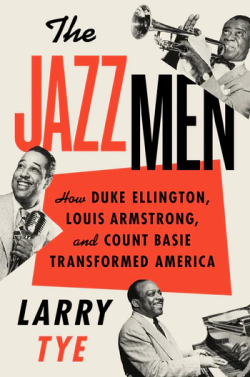
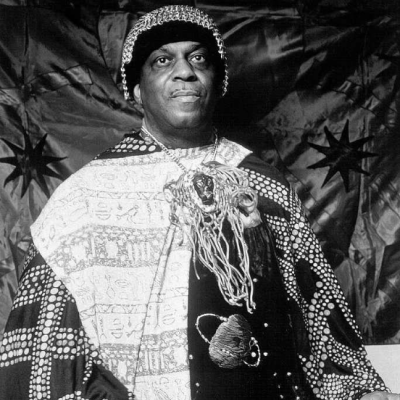
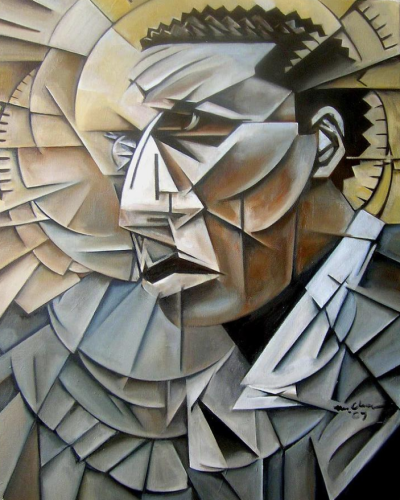

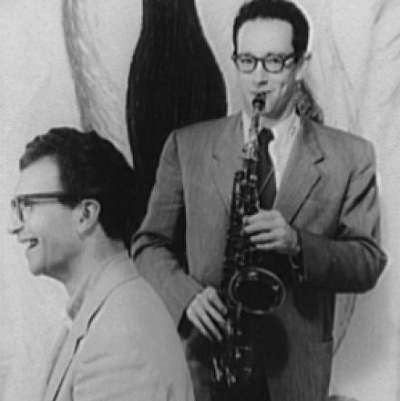

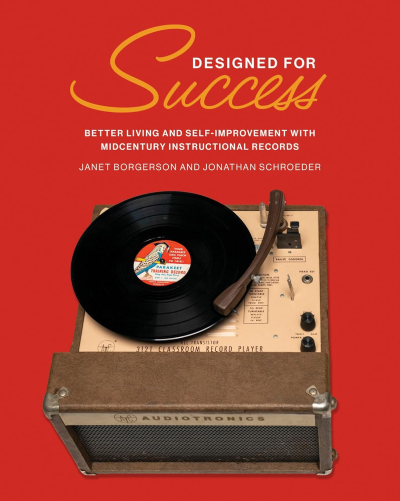

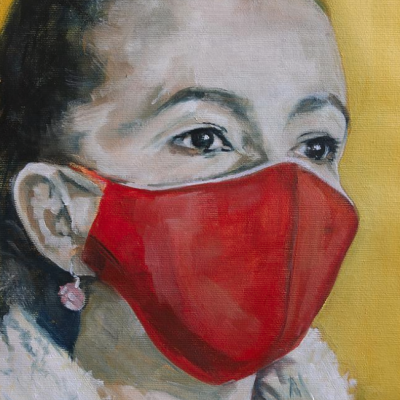
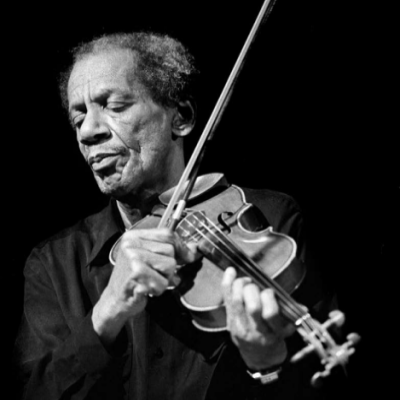
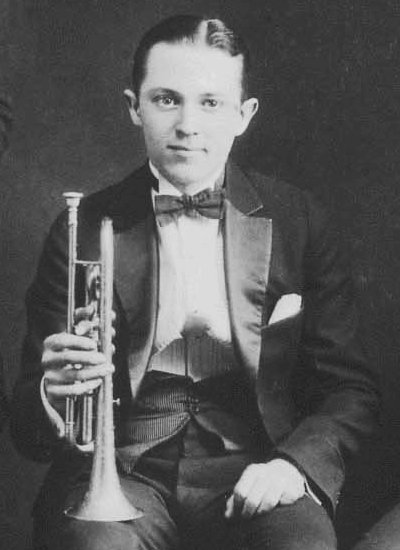
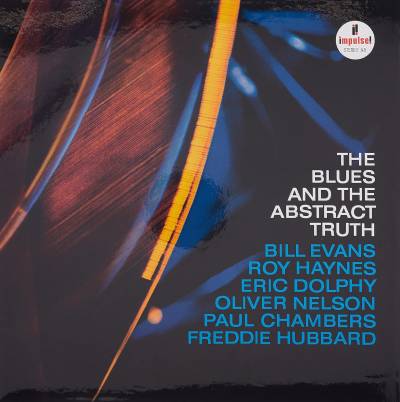


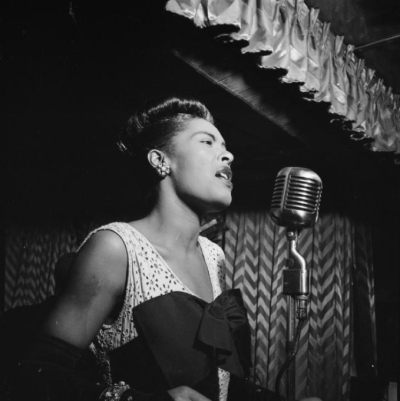
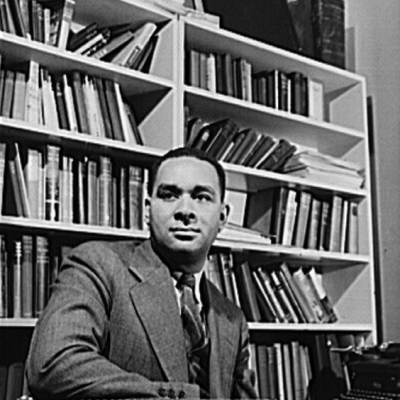






Dear Mr. Davis I’m currently writing for my new web page as yet unpublished an on going piece called, “Beyond The Image” Your book “The History Of the Blues” Is so great it’s a huge help. Thank you for your work. I will continue to read your books as I go along in my own work, of keeping this rich musical heritage alive.
Dear Mr. Davis I’m currently writing for my new web page as yet unpublished an on going piece called, “Beyond The Image” Your book “The History Of the Blues” Is so great it’s a huge help. Thank you for your work. I will continue to read your books as I go along in my own work, of keeping this rich musical heritage alive.